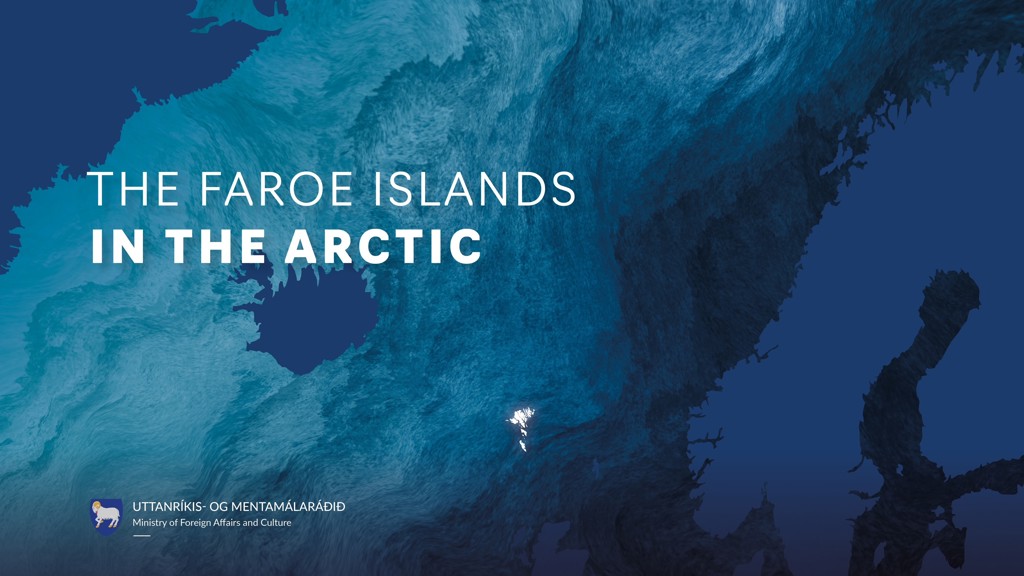
Foreign Minister Jenis av Rana today launched the Arctic Policy of the Faroe Islands during the Opening Session of Arctic Circle Assembly 2022 in Reykjavík.
The Arctic Policy of the Faroe Islands defines the Faroe Islands as a partner in the Arctic, aims to strenghten the role of the Faroe Islands in the Arctic Council and other relevant fora and lays the foundations for decision-making processes that help foster development, knowledge and progress in the Faroe Islands and throughout the Arctic.
In his Reykjavík speech today Foreign Minister Jenis av Rana stressed the importance of focusing of the people living the Arctic and described the backdrop for lanuching the Arctic Policy as one of changing realities.
“We are at a turning point in global politics. The reality of the global political area is changing. The rules-based system of international politics is under pressure. And the challenges we are facing require us to act.
Act to ensure that the Arctic remains a peaceful and stable region. Act to mitigate the effects of climate change. Act to wisely and sustainbly manage our natural resources. And in essence to use as a guiding principle the ability that the untamed and often harsh Arctic natural surroundings have taught us: To work together – across nations – to translate challenges into opportunities.”
The Arctic Policy is composed of eight strategic policy areas:
- Stability and Security in a more uncertain world because the Faroe Islands work to ensure that security and stability continue to prevail in the Arctic.
- International Cooperation because cooperation through organisations and collaboration between countries is of vital importance to meet the many challenges facing the international community, both in the Arctic and the world at large.
- Environment, Nature and Climate because climate change is the most serious challenge of our time. Climate change is especially evident in the Arctic region and is happening faster here than anywhere else in the world. It affects people, living conditions, biodiversity, nature and the environment, and the very conditions for living and working in the Arctic are therefore also changing.
- Research, Knowledge Advancement and Education because knowledge based on research and science is a critical precondition for making appropriate decisions regarding nature and the environment in the Arctic; decisions which can ensure sus¬tainable development and foster growth in the region.
- Preparedness and Response because access to previously inaccessible areas and increased traffic and activity requires pertinent preparedness and response arrangements at national and international level
- Living Marine Resources because fisheries in the Arctic context constitute a framework for countless opportunities for sustainable economic growth, and cooperation on research and knowledge about life in the ocean.
- Economic Opportunities and Sustainable Development because flourishing living conditions in the Arctic are reliant on a diversity of economic opportunities and jobs, which encourage people to move to and thrive in the region.
- Culture and Society because culture shapes both identity and social development in the Arctic. Greater respect for the diversity of cultures around the Arctic and stronger cross-border cultural exchange can play a key role in the well-being and growth in Arctic communities.
View the Arctic Policy of the Faroe Islands.
